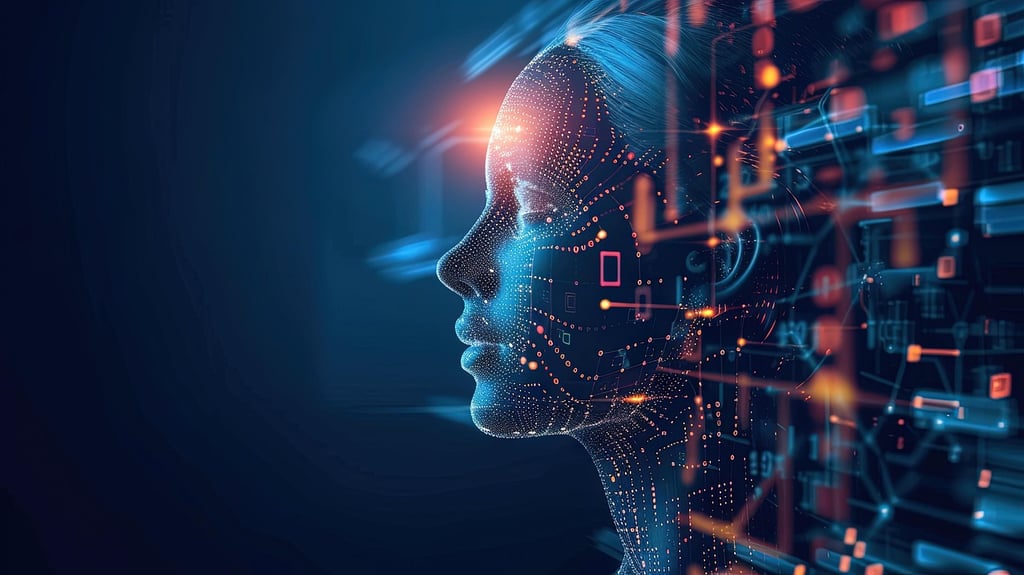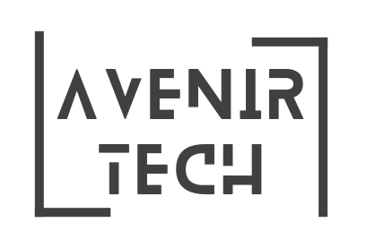The Role of Artificial Intelligence in Advancing Science and Technology
Blog post description.Discover how artificial intelligence is transforming science and technology with real-world applications in research, automation, and innovation. Learn from Avenir Tech's insights on the growing demand for artificial intelligence services in India.
AVENIR TECH
7/2/20254 min read


Artificial Intelligence (AI) has steadily evolved from a niche area of computer science into a core driver of innovation in science and technology. Its ability to mimic human intelligence and learn from data is reshaping the way we research, develop, and implement new ideas.
From healthcare breakthroughs to engineering marvels, AI is playing a crucial role in solving some of the most complex challenges across sectors. In this article, we’ll explore how artificial intelligence is transforming science and technology, and what the future may hold as this integration deepens.
Understanding Artificial Intelligence in Context
Artificial Intelligence refers to machines or systems programmed to think, learn, and act with a level of intelligence that mirrors human reasoning. These systems can analyze vast amounts of data, recognize patterns, make decisions, and continuously improve through machine learning and deep learning models.
When applied to scientific and technological domains, AI helps accelerate processes, reduce human error, and open up entirely new pathways for discovery.
Impact of AI on Scientific Research
AI has become an essential tool in modern scientific research. Its influence can be seen in:
1. Data Analysis and Predictive Modeling
Scientists often deal with large datasets that require extensive time to interpret manually. AI-powered algorithms can swiftly analyze complex datasets and extract meaningful insights. This is especially critical in fields like genomics, climate research, and physics, where real-time predictive modeling can drive faster outcomes.
2. Drug Discovery and Biotechnology
AI is revolutionizing drug development by reducing the time and cost it traditionally takes to bring a new drug to market. Algorithms can predict molecular behavior, identify potential drug candidates, and optimize clinical trials—all with greater efficiency and precision.
3. Astronomy and Space Exploration
In space research, AI is being used to analyze data from telescopes, identify celestial objects, and even guide autonomous rovers on planetary missions. It allows astronomers to detect patterns and anomalies that might otherwise go unnoticed.
Role of AI in Modern Technology
AI's role in technology spans various sectors—from automation to cybersecurity. Its integration enhances the speed, accuracy, and adaptability of modern technological systems.
1. Smart Automation
Industries are deploying AI for intelligent automation of manufacturing, logistics, and maintenance processes. Robots and autonomous machines are being trained to perform repetitive tasks with minimal human intervention, increasing efficiency and reducing costs.
2. Cybersecurity and Threat Detection
AI enhances cybersecurity systems by identifying threats, detecting intrusions, and responding to potential attacks in real time. Unlike traditional systems, AI adapts continuously to evolving cyber threats using machine learning models.
3. AI in Software Development
Artificial Intelligence is increasingly influencing the way software is designed and deployed. From auto-generating code to testing applications, AI tools are helping developers streamline the software development lifecycle.
Benefits of Integrating AI into Science and Technology
Faster Discovery: AI accelerates hypothesis testing and experimentation, leading to quicker innovations.
Enhanced Precision: Reduces human error, especially in fields like surgery, aerospace, and engineering.
Cost Reduction: Automation and predictive modeling significantly reduce operational costs.
Innovation Boost: Facilitates entirely new methods of scientific and technological development.
The Future of AI in Scientific and Technological Growth
The future of artificial intelligence in science and technology is full of promise. As AI algorithms become more advanced and data becomes increasingly accessible, its role is set to expand further. Personalized healthcare, climate modeling, clean energy solutions, and space colonization are just a few domains poised for disruption through AI.
Moreover, as businesses and institutions seek advanced digital solutions, the demand for reliable artificial intelligence services in India is on the rise. Organizations that leverage these services can unlock new levels of performance, efficiency, and innovation.
Conclusion
Artificial Intelligence is no longer a futuristic concept—it is a practical, transformative force that’s driving the next wave of advancements in science and technology. By automating complex tasks, enhancing data interpretation, and enabling innovative breakthroughs, AI is helping us tackle global challenges with unprecedented precision and speed.
As we continue to explore AI’s potential, it’s clear that integrating intelligent systems will remain at the heart of innovation. For organizations aiming to stay ahead in the evolving landscape, investing in trusted artificial intelligence services in India will be key to unlocking long-term success.
Frequently Asked Questions (FAQs)
Q1. How is artificial intelligence used in scientific research?
AI is widely used in scientific research to analyze large datasets, predict outcomes, and automate repetitive tasks. It helps researchers in fields like biology, physics, and environmental science accelerate discoveries, reduce errors, and gain deeper insights through advanced algorithms and machine learning models.
Q2. What are some real-life examples of AI in technology?
Real-life applications of AI in technology include voice assistants (like Siri or Alexa), facial recognition systems, self-driving vehicles, predictive text tools, cybersecurity monitoring, and AI-powered chatbots. These tools improve user experience, enhance safety, and drive automation.
Q3. Why is AI important for future technological advancements?
AI is critical for future technological growth because it enables machines to learn, adapt, and make decisions. This results in faster innovation, personalized user experiences, and solutions to complex global challenges like climate change, healthcare, and digital transformation.
Q4. Are artificial intelligence services in India reliable for global businesses?
Yes, artificial intelligence services in India are known for their affordability, innovation, and technical excellence. Indian AI companies offer solutions in various industries including healthcare, fintech, manufacturing, and retail, and are trusted by clients around the world for scalable and high-quality implementations.
Q5. What industries are being transformed the most by AI?
AI is significantly transforming industries such as:
Healthcare – through diagnostics, robotic surgery, and predictive health analytics.
Manufacturing – with smart automation and predictive maintenance.
Finance – via fraud detection and algorithmic trading.
Retail – through customer behavior analytics and supply chain optimization.
Education – by enabling personalized learning systems and virtual teaching assistants.
© Avenir Tech 2025. All rights reserved.
Subscribe to our newsletter
Company
